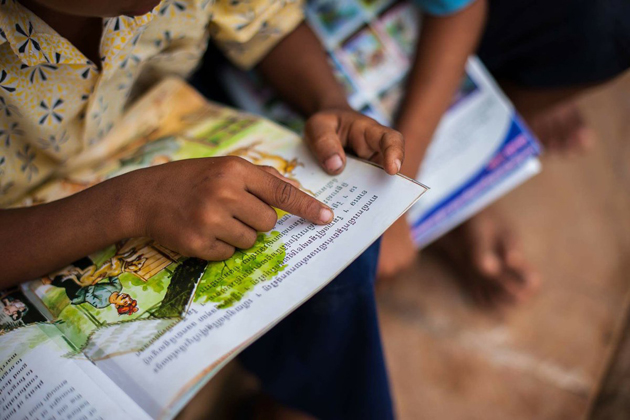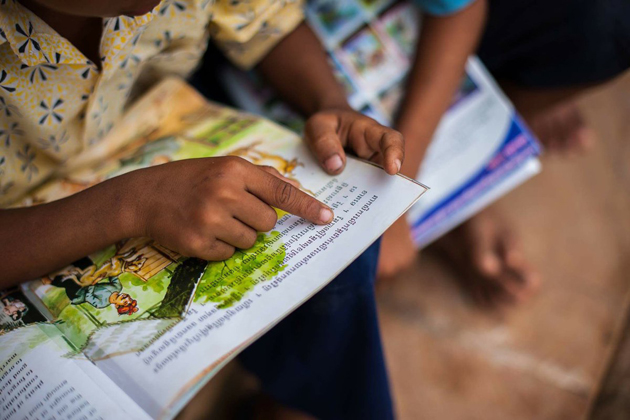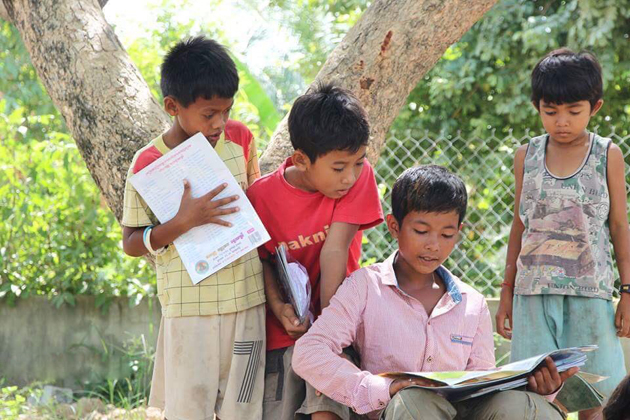Chen Rachana, who is a ten years old girl, is studying in grade 3. She lives in a small village named Kak in the Borkeo district of Ratanakiri which is closed to the borders among Vietnam, Laos, Cambodia, taking 9 hours driving to the northeast of Phnom Penh. Ratanakiri is a well-known destination for its gorgeous waterfalls, a lake lying in the center of a mountain formed by an ancient volcano, and as an attraction where trekkers leave for their jungle excursions as well as a destination in Cambodia tour for foreigners travelling to Cambodia. Kak is a village consisting of elevated wooden houses built on stilts. Rachana’s father runs a small convenience store outside their home, her mother is recovering from a stomach illness in the hospital. Rachana’s village is an isolated place, hence, reaching a hospital is quite difficult. Due to the remoteness of their community, a large number of dwellers do not try to seek treatment when they suffer from illness, because there are no healthcare services nearby and they don’t have the appropriate documentation that enables them to approach free healthcare.
The isolation of the village is another reason which influences on the accessibility of social services which are more readily available for citizens in big cities like Phnom Penh.
Rachana usually helps her family by doing household chores and assisting her father’s business. But today is a very special day, although the ground is still muddy from the rain of the previous night, the village is still noisy with activity as SIPAR, a non-governmental organization that promotes education, health, and nutrition, has recently arrived.
SIPAR, which is a program supported by UNICEF, hosts numerous educational activities geared toward the needs of local people once a week. Today, they divided the residents into 3 groups based on their age. Those who are in the age from 3 to 7 get together at the community showcase to watch the puppet show, listen to Kamishibai storytelling, and participate in other creative activities including puzzles and coloring. People are among 8-17 years old assemble in a family and watching the episodes from a UNICEF-produced TV serial emphasizing the importance of appropriate nutrition and water, sanitation and hygiene (WASH) practices, before participating in “free reading” session and educational games taking place at the showcase. Parents gather in the shade of a stilted home in order to participate in a course on health and nutrition, getting to know the crucial role of the various food groups and proper WASH techniques as well.
A great number of villagers lacking knowledge not only proper sanitation and hygiene practices but also the importance of using clean drinking water, or avoiding diseases. This becomes a remarkable problem in the village as well as in many other remote areas. However, numerous residents, inclusive of Rachna’s parents, are illiterate, which leads to an extremely difficult problem in helping them know thoroughly the role of nutrition and WASH.
“The principal goal of the project is to impulse education by orienting their activities towards the demands of the local people we serve.”, said Sin Sothea, the library programme coordinator for SIPAR.
He also claimed that the small kids didn’t understand about nutrition, so they taught residents simple things, such as the importance of washing their hands. They also learn how to open a book, hold a pen, or write their name. For the older children, they delivered education through an entertaining video on how to keep healthy. They tried to make the sessions fun and engaging so that the residents would be excited to learn and welcome them back.
When the SIPAR’s project has progressed, their task started with a “mobile library”. However, the mobile library which came to the village is probably not what one would expect. Rather than at the back of a truck or bus (SIPAR used in other location), the books came to Rachan’s village appear as a large container, like a big metal cooler – attached to the back of a motorbike. The library is located on the back of a motorbike because the village is still inaccessible to most other vehicles.
The library works efficiently as people expect, however, every week, the mobile library comes to the village and allows villagers to borrow a book, when it comebacks next week, they can give it back and borrow another one.
Rachana is really into the reading book. Whenever the free reading period began, her eyes sparkled, she rushed to the front of the line to get the first choice from the librarian. When reading, many children gather around her, she still patiently help them tell them the words of the stories they were reading. She also says that she loves teaching others to read because “reading is my favorite thing to do”.
In fact, Rachan will read any book she can get, although she is especially keen on books with snakes or fairytales relating princesses. Though Rachana is just a 10 years old girl, she has been reading for a time. Thus, she is extremely grateful for the visit every week from the project. Before, the only books she could get and read were textbooks from school for her family doesn’t have any book.
“The mobile library began my love of reading,” she said with a beautiful smile, “because textbooks are not as fun to read as picture books”. Rachana’s parents love to hear their daughter read the books she gets from the project.
Rachana would like to be a teacher when she grows up because she wants to teach and inspire to others the joy of learning. She goes to school daily and takes her study seriously. Mathematics is her favorite subject in school.
SIPAR, which works in 80 villages in Ratanakiri, Kratie, and Phnom Penh, is essential for the personal growth of children, like Rachana. UNICEF supports the mobile libraries with funding from Sida, Primark via the Irish National Committee for UNICEF, as well as the Australian, Korean and Canadian Committees for UNICEF.
This wonderful program opens a new door for learning, at the same time helps to bridge the knowledge gap surrounding WASH and nutritional problem by offering understandings to local people, both physically and pedagogically.
The innovation of SIPAR has been a background in shaping the outlook of villagers towards nutrition, health as well as education. And “they shouldn’t change a thing”, in Rachana’s view.





